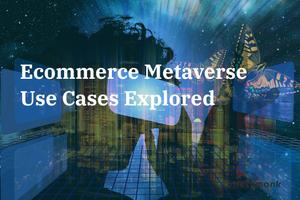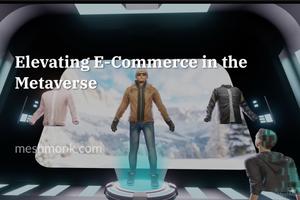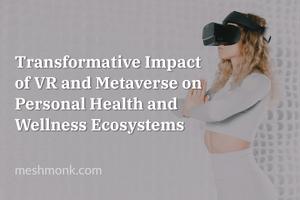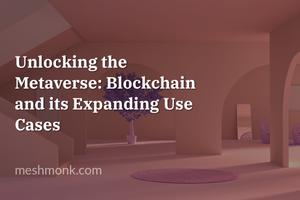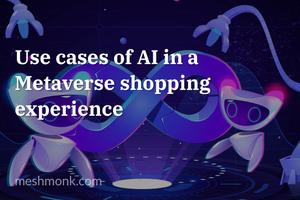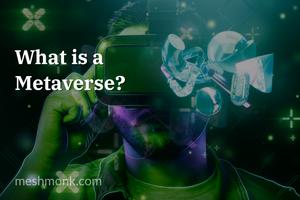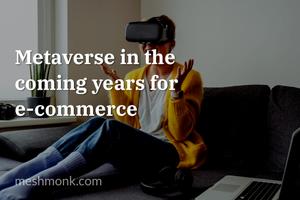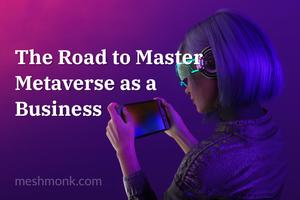Unlocking the Metaverse: Blockchain and its Expanding Use Cases
The Metaverse has emerged as a virtual world where users can interact with digital representations of people, places, and things. This immersive, interconnected space has opened up new possibilities for business, entertainment, and social interaction. One technology that has been instrumental in driving the evolution of the Metaverse is blockchain. The decentralized nature of blockchain has enabled a range of use cases, from secure financial transactions to digital identity management. In this blog post, we’ll explore the importance of blockchain in the Metaverse and dive into some of its most exciting applications.
Digital Ownership and Non-Fungible Tokens (NFTs)
Digital ownership has become a cornerstone of the Metaverse experience. Non-Fungible Tokens (NFTs) provide a way to represent unique digital assets on the blockchain, from virtual real estate to digital art. This technology allows users to have verifiable ownership of their digital assets, which can then be bought, sold, and traded in the virtual world. By tokenizing these assets, blockchain ensures that they are easily transferable, trackable, and secure.

Decentralized Finance (DeFi) in the Metaverse
Decentralized Finance (DeFi) is a financial system built on blockchain that operates without intermediaries like banks or financial institutions. DeFi has found its way into the Metaverse, enabling new ways of conducting transactions and managing virtual assets. Users can access financial services such as borrowing, lending, and trading in a permissionless and trustless manner. By utilizing smart contracts, DeFi ensures that transactions are secure and transparent, fostering confidence in the virtual economy.
Digital Identity Management
As users spend more time in the Metaverse, managing digital identities becomes increasingly important. Blockchain technology enables the creation of decentralized identities (DIDs) that empower users with control over their personal information. DIDs provide a secure, portable, and self-sovereign identity system, allowing users to share their information selectively with services and platforms within the Metaverse. This approach not only enhances privacy but also reduces the risk of identity theft and fraud.
Governance and Decentralized Autonomous Organizations (DAOs)
The Metaverse is home to various communities, each with its unique rules and governance structures. Blockchain technology allows the creation of Decentralized Autonomous Organizations (DAOs) that enable communities to self-govern in a transparent and democratic manner. DAOs are organizations run by smart contracts, which execute rules and decisions based on the consensus of their members. This decentralized approach to governance ensures that no single party can dictate the actions of the organization, fostering a more equitable and collaborative environment.
What are DAOs?
Decentralized Autonomous Organizations (DAOs) are organizations governed by smart contracts and driven by the consensus of their members, without the need for centralized decision-making or hierarchical structures. In a DAO, rules, protocols, and decisions are encoded in smart contracts on the blockchain, ensuring transparency, immutability, and trust. Members can propose and vote on initiatives, with the outcome determined by the collective will of the community. This democratic approach to governance fosters greater collaboration, inclusivity, and accountability within digital communities. DAOs have the potential to revolutionize the way digital communities govern themselves in the Metaverse, enabling a more democratic, transparent, and inclusive approach to decision-making.
Virtual Reality (VR) and Augmented Reality (AR) Integration

Blockchain’s ability to securely manage digital assets and identities has facilitated deeper integration of Virtual Reality (VR) and Augmented Reality (AR) technologies into the Metaverse. Users can now interact with the virtual world more seamlessly, thanks to the trust and transparency provided by blockchain.

As the Metaverse expands, VR and AR experiences will become increasingly immersive, allowing users to access and engage with digital content like never before.
Blockchain technology is revolutionizing the Metaverse, enabling new levels of digital ownership, financial freedom, and secure identity management. As this virtual space continues to evolve, blockchain will play an increasingly critical role in shaping its future. From NFTs to DeFi, DIDs to DAOs, the use cases for blockchain within the Metaverse are only set to grow, unlocking a wealth of new opportunities for users, developers, and businesses alike. The Metaverse is still in its infancy, but with the power of blockchain at its core, it is poised to become a transformative force in the digital world.

